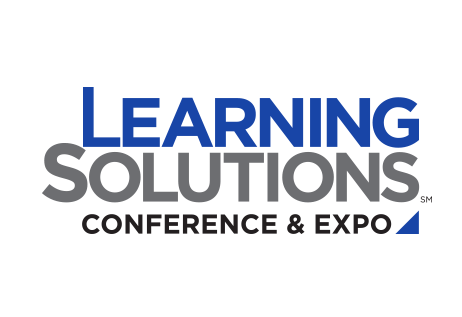About The
Learning Guild
The Learning Guild is a community of practice for those supporting the design, development, strategy, and management of organizational learning. As a member-driven organization, the Guild produces a countless number of resources all devoted to the idea that the people who know the most about making learning successful are the people who produce learning every day in corporate, government, and academic settings. Our goal is to create a place where learning professionals can share their knowledge, expertise, and ideas to build a better industry—and better learning experiences—for everyone.
Tap into the vast well of expertise by becoming an Learning Guild Member for free.
Conferences
The Guild produces several conferences, including DevLearn, Learning Solutions, and Learning. Learn more.
Learning Solutions
eLearning industry’s oldest and most trusted source for information on eLearning. Learn more.
Online Conferences
![]() Online conferences take an in-depth look at contentious topics in our industry. Learn more.
Online conferences take an in-depth look at contentious topics in our industry. Learn more.
Guild Research
![]() Guild Research produces reports and resources to help you understand the depth of our field. Learn more.
Guild Research produces reports and resources to help you understand the depth of our field. Learn more.
Webinars
![]() Connect directly with learning experts and discover ideas, tips, and techniques to help you improve your skills. Learn more.
Connect directly with learning experts and discover ideas, tips, and techniques to help you improve your skills. Learn more.
Newsletters
![]() Insider and Update newsletters are quick-reads designed to keep you updated on Guild news and important industry topics.
Insider and Update newsletters are quick-reads designed to keep you updated on Guild news and important industry topics.
Guild For Good
![]() This program celebrates those in our community who go above and beyond to create a better tomorrow for all. Learn more.
This program celebrates those in our community who go above and beyond to create a better tomorrow for all. Learn more.
Job Board
![]() Post your resume, find a great new job, or a great new employee using The Learning Guild Job Board. Take a look at the Job Board.
Post your resume, find a great new job, or a great new employee using The Learning Guild Job Board. Take a look at the Job Board.
Other Benefits
![]() Annual Salary & Compensation Report, conference handouts, networking opportunities, and more.
Annual Salary & Compensation Report, conference handouts, networking opportunities, and more.
Filter By:
Sessions in Block 1
LS101 Using Blended Learning Solutions to Achieve Business Revenue Goals
Concurrent Session
Too many times, training struggles to show its impact on a business; the metrics used to measure training are unrelated to the bottom line results of a firm. Training departments often have difficulty showing their impact on sales and revenue goals. Thus training is viewed as a support function or engaged only when necessary.
Read MoreHow much does a car cost? How long does it take to build a house? How long is a piece of string? The answer in all cases—it depends. You can run into the same uncertainty with an eLearning project if it is not properly defined up front. If you don’t know what you are trying to accomplish, what stakeholders expect, what your technology constraints are, and what business drivers will affect your project, how can you create and follow a plan to a successful conclusion?
Read MoreSound learning theory underpins much of traditional instructional design (ID) and can greatly improve user experience, but the advent of a need-to-know-now culture is proving the art of innovation can and must work alongside the science of design. The challenge is to balance the needs of your users and the concerns of established IDs against harnessing the originality of developers who may lack a traditional background.
Read MoreLS104 Making Learning Objects Shareable and Transferable
Concurrent Session
Creating learning objects is a time-consuming process. Most learning objects have content that could be used across different courses and departments. However, many learning objects, such as videos, tutorials, instructional documentation, and online courses are created with identifying details that make them difficult to repurpose or share with other members of the organization.
Read More“Blended learning” was one of the hottest buzzwords at the dawn of the new millennium. At its worst, it was giving the learner the choice of attending the formal class in person or online. In its best and most cutting-edge application, it was a design construct focusing on combining or blending the best elements of face-to-face classes with eLearning courses to increase retention and/or reduce costs. It was a cutting-edge approach at the time, and for many organizations, this is where they currently are with applying blended learning. But the blend has changed.
Read MoreLS106 iMOOCs: An Interactive Approach to Large-scale Collaborative Learning
Concurrent Session
Massive open online courses (MOOCs) have received a fair amount of publicity, but mixed reviews overall. Participants appreciate the collaborative nature of MOOCs, and their accessibility—but much of the learning is passive in style, which tends to be fairly ineffective, transfers poorly to on-the-job skill application, and doesn’t maintain participants’ interest. Today’s typical MOOC format is therefore not particularly well-suited for most corporate training needs. Companies are, nonetheless, interested in capturing the positive qualities of MOOCs.
Read MoreAn eLearning template is not a set of PowerPoint master slides. A true eLearning template is so much more, and has many elements and components. While a set of master backgrounds is a great start, there are often overlooked aspects of a template that are never considered. Designers and developers often begin with raw content and begin a project in their chosen authoring environment, rather than thinking through the overall user experience. For those projects that involve multiple modules where it’s important to keep a consistent look and feel, a template approach helps keep all assets organized across modules.
Read MoreLS108 One Step Ahead: Consulting with Clients on Mobile Learning Strategy
Concurrent Session
There is pressure on everyone in learning and development to stay ahead of the curve when it comes to new technology. Knowing the right questions to ask and getting clear information on how to educate clients enables you to switch gears from a reactive order-taker to a consultative partner. Instructional designers and managers need to be grounded in the fundamentals of mobile learning strategies.
Read MoreWe’re all hooked to our
devices and our technology. Most of our work can’t be done without it, let
alone the scheduling, management, and communications of our personal lives.
Likewise, technology is an essential part of today’s training toolbox. So what
does the eLearning landscape look like today? Where have we been, and where are
we going?
In this session we will take a look back to better understand the current
trends in eLearning in order to help us project what the future will bring. We’ll
explore the changing nature of courseware; what mobile technology brings;
simulations; and social tools. We’ll define some key terms being used and you
will gain both ideas and inspiration for how you can incorporate eLearning into
your training plans. You will leave this session better informed and motivated
to try something new in your next learning initiative.
Onboarding is arguably one of the most important learning events in the career of a new employee. Many organizations, however, fail to set up a true learning-focused onboarding program. Instead of inspiring new members of the team, they kill motivation by using boring presentations and eReading instead of eLearning. In today’s workplace, there are many tools and technology that can add value and that will greatly improve this critical learning moment.
Read MoreEveryone sees the power of gamification—a trending concept in the learning and development industry—in the workplace, but is either too expensive or no one knows how to implement it. Learning professionals are being asked to do more with less every day. So if you have already created a catalog of eLearning courses for your organization in Articulate Storyline, how can you make these more engaging? How can you save thousands of dollars by adding basic gamification elements to your existing and new courseware?
Read MoreResearch proves students learn best when doing; information strengthens schemas leading to long-term retention. Yet instructors often feel bound by the constraints of an online classroom. Since they do not meet face-to-face, it can be hard to find ways to encourage active application of information and combat the student fear of failure.
Read MoreECO113 It Wasn’t Broke, but We Fixed It: Rethinking a Corporate University
Concurrent Session
As the Spectrum Health University adapted to an ever-evolving health care landscape, the programs and offerings from the organization needed to change as well. Through an analysis of brand, audience and offerings, and a desire to more closely align with the organization’s new strategy, a sizable challenge was undertaken to reimagine the corporate university with the use of social collaborative platforms and the deployment of micro-learning resources.
Read MoreThe performance ecosystem is about more than just helping people do what is known that they need to do. In this era of continual change, the only sustainable differentiator will be the ability to adapt, deal with ambiguity, and innovate. This comes from a rich ecosystem, but it takes more. Where the culture doesn’t support sharing, where it’s not safe to contribute, the ecosystem can’t flourish, and organizations can miss out on the opportunity.
Read MoreToday’s market requires faster onboarding; often there is overlap or confusion between process and training. Staff are overwhelmed by information in the initial stages of their performance and often forget or don’t have the opportunity to apply the why and the how of what they have learned in an appropriate timeframe.
Read More


























